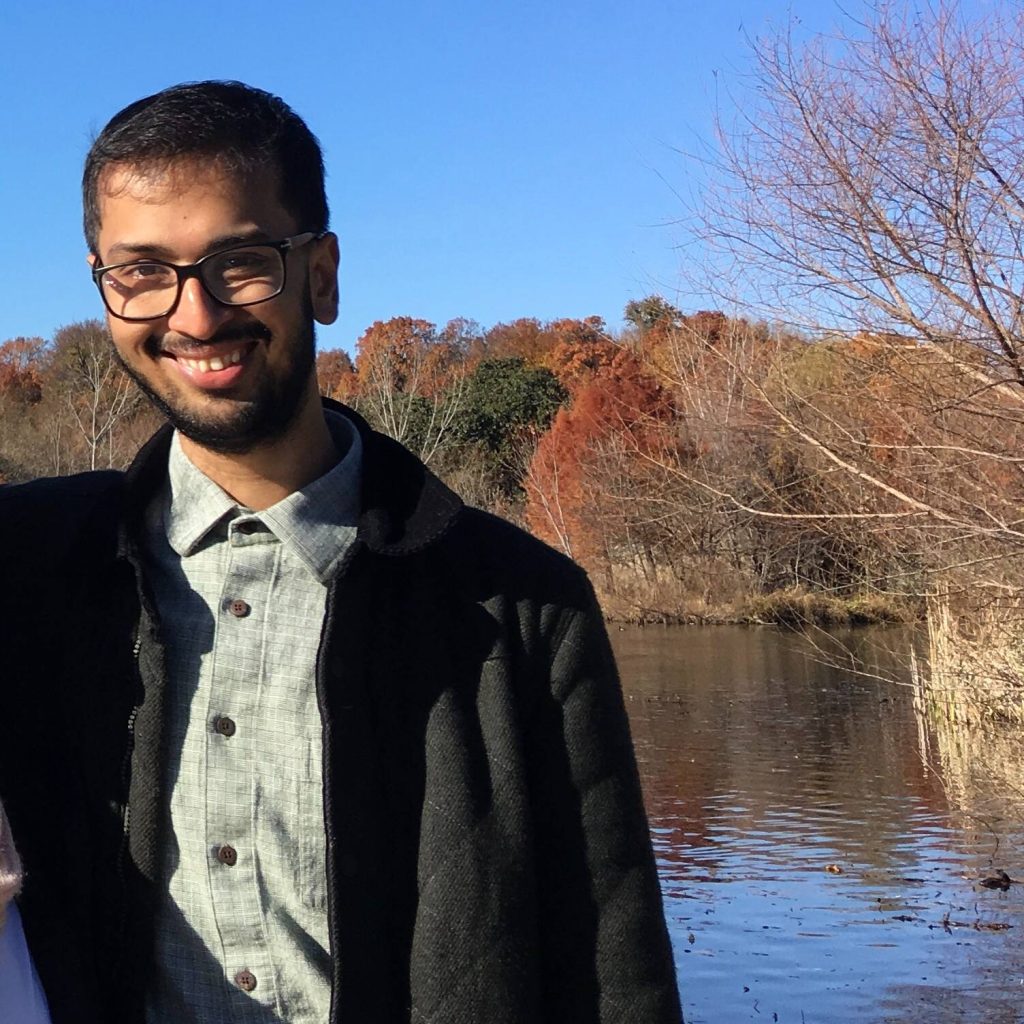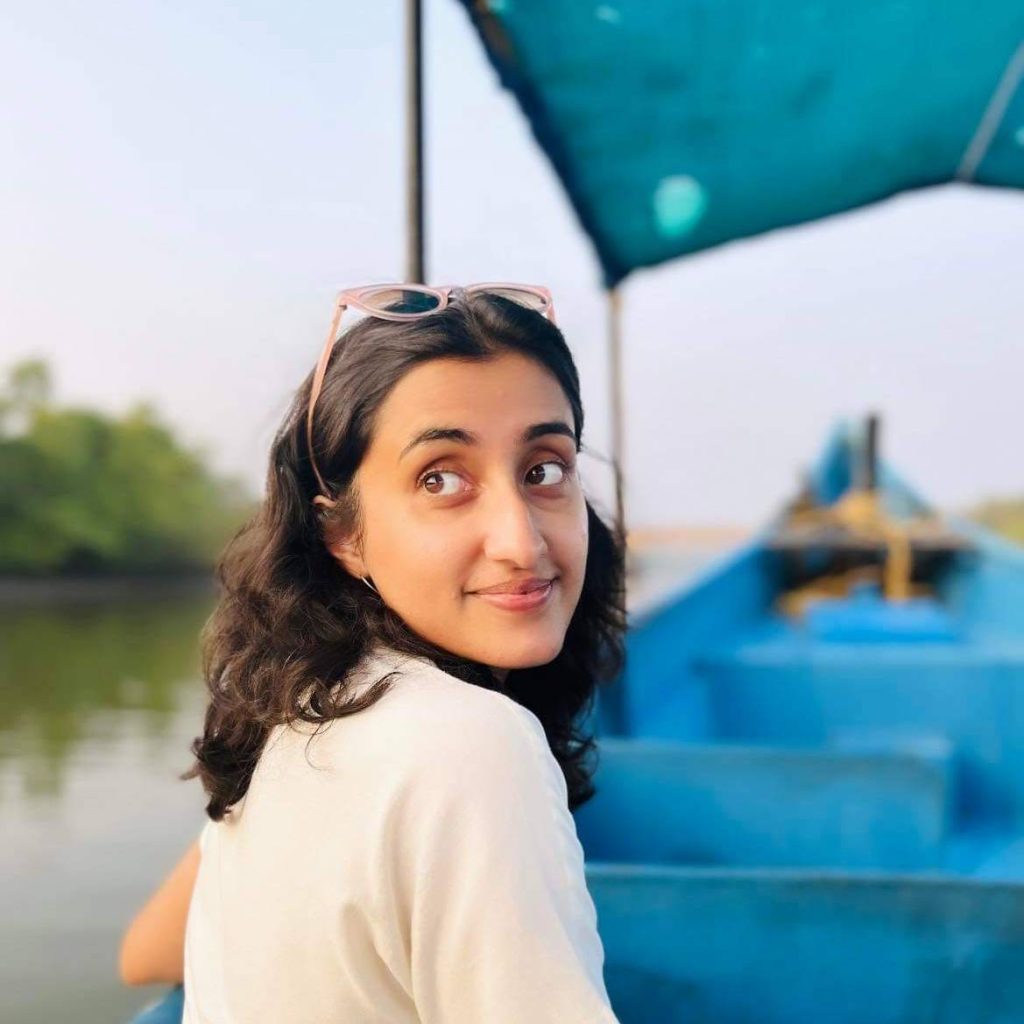
Duke India Initiative Celebrates Grantees’ Success
Travel grants empower Duke graduate students to conduct research in India.
-By Charles Givens
April 10, 2024
The Duke India Initiative (DII) plays a crucial role in fostering academic engagement with India. In order to support research related to the region, the initiative has supported sixteen Duke graduate students on various research projects over the past year. The projects explore different aspects of India’s past, present and future.

To be eligible, students must be enrolled full-time in a Ph.D. or Master’s program at Duke and their travel must be demonstrably connected to India and aligned with the mission of the DII. While travel to India is preferred, it is not mandatory. Students attending conferences must have secured acceptance for a presentation, and all applicants must provide a detailed budget outline and complete an impact report.
“It’s incredibly rewarding to see the impactful experiences our student awardees gain from their travels,” said Rohini Thakkar, Program Coordinator for DII. “These experiences not only advance individual academic pursuits but also foster global collaborations and deepen understanding across various disciplines. We are proud to support such meaningful endeavors of our students that continue to shape the academic landscape and contribute to real-world solutions.”
Below are the sixteen awardees and a summary of each project, ranging from studying the history of food and charitable giving in India to testing a low-cost cancer diagnostic device. Through the help of DII, these students are contributing to crucial research while forging valuable connections with partners abroad.


Devin Creed
Duke India Initiative funding supported dissertation research in India on the history of foodways and charitable practices. Outcomes include research collaborations and plans for a pop-up restaurant showcasing historical cuisine. This research examines how endemic famines have shaped food culture and charitable giving in Bengal and North India.


Nikhita Gopisetty
DII funding supported research in India on a peer-supported intervention for young adults with type 2 diabetes. This work resulted in successful data collection and positive feedback from participants. This research has the potential to improve the quality of life and diabetes management for young adults in rural India.


Archit Guha
DII funding facilitated research in India on the history of meteorology. The project aims to explore the history of science and the environment, drawing on visual, literary and cultural archival sources, providing access to new archival materials and laying the groundwork for future dissertation research. This research explores the development of meteorological knowledge and its impact on South Asia and the Indian Ocean region.


Ankita Gupta
DII funding has enabled waterbird surveys in India, in particular in the agricultural wetlands of Kheda, one of the districts of Gujarat, a district in western India. These (largely) man-made wetlands are threatened habitats, due to conversion and pollution. The time in India strengthened research collaborations and contributed to a broader study on climate change impacts. The work aims to understand the factors affecting waterbird distribution and inform wetland management strategies.


Ananya Mahapatra
DII funding enabled research at the British Library. The time in London refined e dissertation research questions and helped to lay the groundwork for future fieldwork in India. In particular, the work examines watches and timepieces as political and cultural instruments of power. The research explores the history of women’s education in colonial India, utilizing diverse sources, including textual and visual materials.


Shreya Maini
DII funding supported pre-dissertation ethnographic research in India on global spiritual practices. The research unpacks the practices, mythologies and spirituality of the World Teacher Trust as it relates to Hinduism. The visit result in new friendships, research progress and potential future publications. The research explores the intersection of tradition and modernity within the spiritual community.


Joanna Marbaniang
DII funding facilitated pre-dissertation fieldwork in India related to gambling addiction in India, specifically related to a number-based game of archery. Time on the ground led to a shift in research focus and new networks with local institutions. The research now integrates medical anthropology and indigenous studies to examine the role of gambling in indigenous worldview-making.


Ashwin Pant
DII funding facilitated an inaugural MBA trek to India, providing 50 Fuqua students with valuable networking opportunities, cultural immersion and practical business insights. The trek included meetings with influential alumni, a VIP visit to the Rashtrapati Bhavan and exploration of diverse cities, all of which had a profound impact on participants.


Prajakta Prabhune
DII funding supported a conference presentation in India, sparking interest in research on nanodielectrics and leading to potential collaborations with Indian scientists. This interdisciplinary field relates to how these particles are relevant for insulators and energy storage devices. The presentation also helped the recipient develop communication skills and bridge the gap between basic and applied research.


Ravi Prakash
DII funding enabled collaboration with Indian researchers and hospitals to test a low-cost cancer diagnostic device, securing ethical approval and paving the way for future studies. It explored the diagnosis of skin cancer in the region, which will likely experience a rise over the next decade. The project calls for a new uptake scheme to identify skin cancers early. And has the potential to improve access to cancer care in resource-limited settings.


Rosalind Rothwell
DII funding related to the research project on South Indian material culture enabled successful dissertation research in France, exceeding expectations and providing crucial insights into early modern South Indian material culture and trade. The Pondicherry notarial records proved particularly valuable, revealing details about everyday life and confirming the interconnectedness of colonial settlements on the Coromandel Coast.


Divya Sebastian
DII funding facilitated a conference presentation in India, leading to discussions about multinational R&D. In particular, this project explores how companies adapt to the changing landscape of global talent. The visit resulted in the establishment potential collaborations with international researchers. The presentation also helped her the recipient’s professional skills and facilitated valuable insights into the Indian job market.


Sakina Shahid
DII funding enabled travel to Sri Lanka for data collection on chronic kidney disease, providing valuable insights and furthering global health research. The project integrates the implementation of silicon wristbands into toxicology research. This is a novel approach with the potential to improve understanding of the underlying causes for and treatment of the disease.


Shuvan Shrestha
DII funding facilitated ethnographic research inside a Vrindavan ashram, about mangos in unfurling ashram life. This research will be presented at the American Academy of Religion conference in San Diego this November. The research encourages anyone to pay close attention to fruits in religion, because so often: things that seem inherently religious—Gods, guru, or sacred texts—inform our understandings of religion.


Parul Sirohi
DII funding enabled conference presentation in India on the delivery of therapeutic biologics, an ambitious project combining polymer synthesis, protein engineering at genetic level and conjugation methods between therapeutics and delivery. The visit , led to valuable connections with scientists and contributied to the recipient’s professional development. The presentation also generated positive feedback and is being developed into a manuscript for publication.


Danny Tobin
DII funding supported research in India on farmers’ adoption of agroforestry, specifically in relationship to the work of the Centre for Wildlife Studies. This effort has led to a successful survey deployment and plans for future collaborations and publications. This research has the potential to improve farmer income while promoting biodiversity and environmental health, goals aligned with Duke’s Climate Commitment.

As is evident from the summaries above, Duke graduate students are involved in cutting-edge research that leads to an understanding of the past as well as probing and providing solutions for the future. With DII funding, the connections forged and made will continue to have an impact both at Duke and in India.
